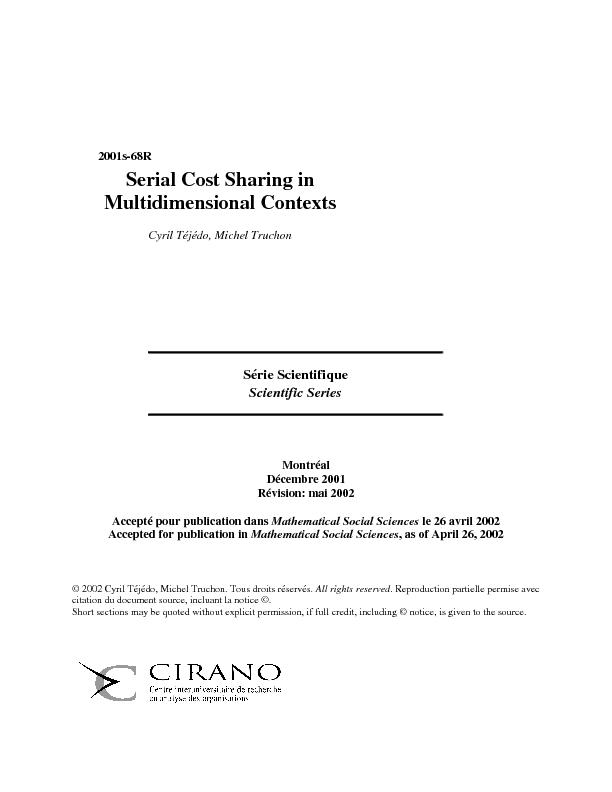Serial Cost Sharing in Multidimensional Contexts (May 2002 revised version)
The Serial Cost Sharing Rule was originally conceived for situations where the demands of agents pertain to a homogeneous private good, produced by an unreplicable technology. In this context, it is endowed with a variety of desirable equity and coherency properties. This paper investigates the extension of this rule to the context where agents request many goods that may be public, private or specific to some of them, where the aggregation rule may be very general and where demands may have to be scaled in a non proportional way, more precisely along paths, in order to compute cost shares. It proposes the Path Serial Rule to address these general problems and explores some of its properties and characteristics. Some of them are transposed directly from the single good context to the general one. However, it is shown that in the general context, the serial principle is incompatible with the basic equal treatment of equals. Thus, it is weakened by requiring that it holds only on the paths along which demands must be scaled when needed. The resulting weaker Path Serial Principle characterizes the Path Serial Rule together with the Equal Treatment of Equivalent Demands, a stronger form of Equal Treatment of Equals.
[ - ]




